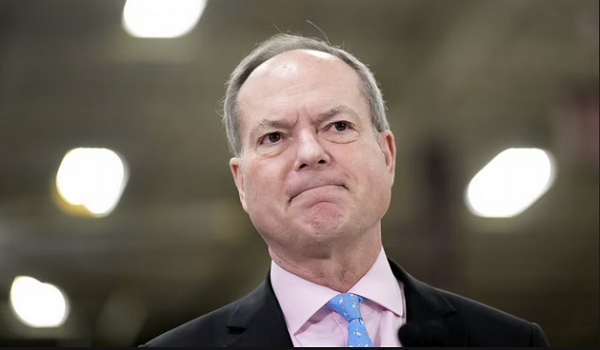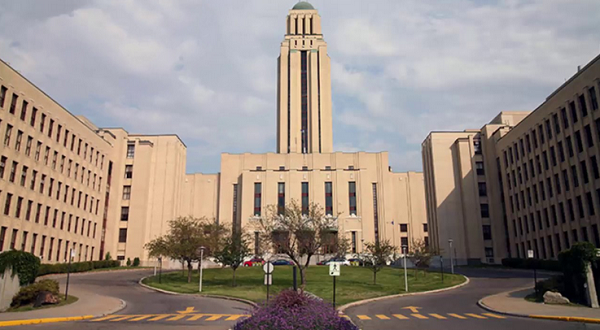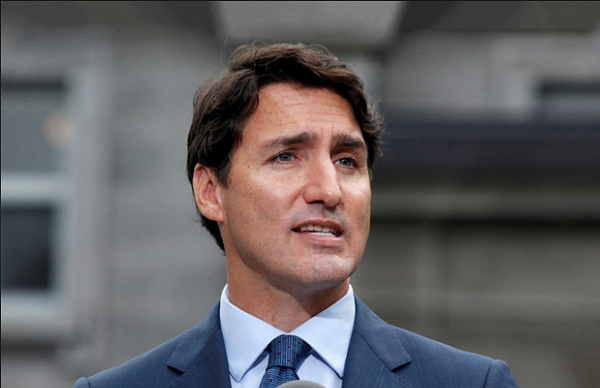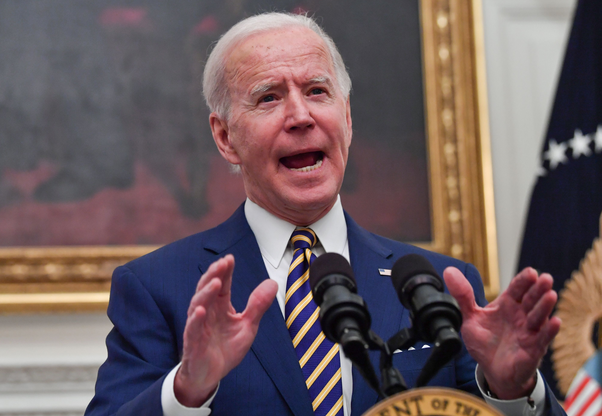Ontario allocates billions for health care in 2024 budget, rising deficits
Ontario pointed to a slowing economy as it posted a $9.8-billion deficit in 2024-25, almost double the size it predicted just last fall and a dramatic change from a year ago, when the government said it would be balancing its books by now.
Finance Minister Peter Bethlenfalvy unveiled the budget at Queen’s Park on Tuesday, delaying the prospect of a balanced budget by two years as he warned that the weaker economy had cut into the province’s tax revenues. The government nonetheless added billions of new spending and is pushing the province’s debt to $439-billion this year – an increase of about $100-billion since Premier Doug Ford’s Progressive Conservative government took office.
“Global economies have slowed, the cost of everything is higher, and so we have two choices: Put the brakes on, or keep going,” Mr. Bethlenfalvy told the legislature. “Mr. Speaker, we choose to keep going – to rebuild Ontario’s economy by supporting workers and families.”
Ontario’s latest budget includes an increase in overall spending, which totals $214.5-billion, up from $207.3-billion. The province now projects a balanced budget in 2026-27, when it predicts a modest $500-million surplus – with an election scheduled for June, 2026.
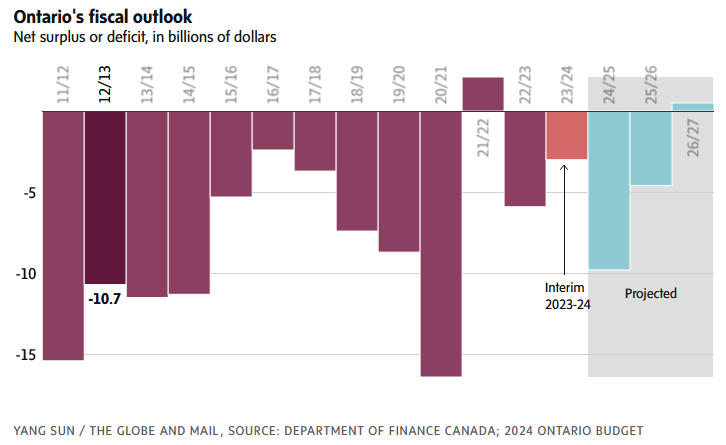
And as it does in all budgets, the government warns that if the economy stalls for longer, its bottom line could worsen: Under a “slow growth” scenario, Ontario could stay in the red though 2027, with even larger deficits. Other provinces have unveiled budgets in recent weeks that reflect a weaker economy, with B.C. and Quebec both projecting multibillion-dollar deficits.
Mr. Ford had previously revealed the budget’s central spending pledge: an additional $1.8-billion for infrastructure, including $1-billion for municipalities to build roads and sewers to facilitate housing construction and $625-million more for a water-systems fund, aimed at helping get more homes built. The budget also includes a new $200-million fund for municipalities to fix and build community recreation centres across the province.
The government used a section of its budget to show it is on its way to meeting its ambitious goal to facilitate the construction of 1.5 million homes by 2031.
The budget claims the province has nearly hit its target last year of 110,000 housing starts – with 109,011. But that number includes 9,835 new or “upgraded” long-term care beds and 9,879 “additional residential units” in existing homes such as laneway houses or basement apartments. Ontario’s actual new housing-starts number was 89,297, down from about 96,100 in 2022.
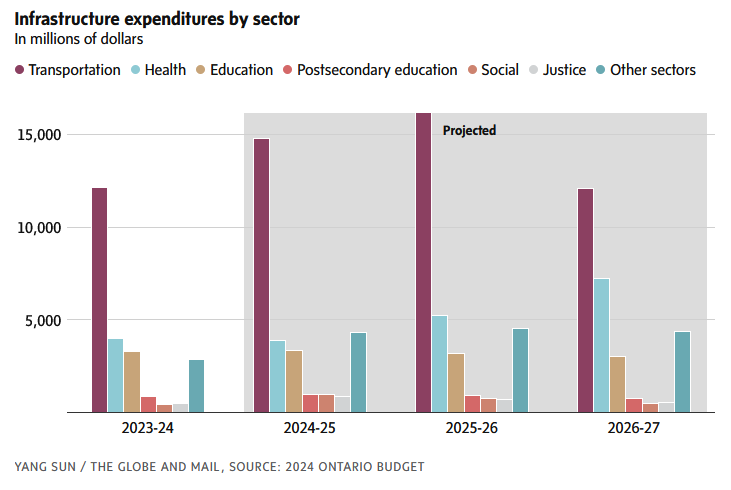
The province needs to build an average of 150,000 homes annually over 10 years to hit its target, but its own projections still show it falling well short of that number in the coming years.
Amid widespread concern about the many Ontarians who lack a family doctor, the budget pledges an additional $546-million over the next three years for “new and expanded interprofessional care teams” to connect patients to a range of providers such as doctors, nurse practitioners and physiotherapists. The money comes on top of $110-million in previously announced cash and the government says it will connect 600,000 people to “team-based primary care.”
The budget for hospitals, some of which have seen staff shortages force the closing of emergency rooms, would increase by 4 per cent, or almost $1-billion, in 2024-25. The government is also formally endorsing a plan by York University to build a new medical school in Vaughan, north of Toronto, that would focus on family medicine.
Mr. Ford, first elected in 2018, has faced criticism from unions and opposition politicians for failing to address a staffing crisis in hospitals and for bringing in wage-cap legislation for public-sector workers that was then deemed unconstitutional by the courts. The ruling is now forcing the government to cough up billions in backpay.
Ontario is proposing to spend an additional $2-billion over the next three years for home care, largely to increase wages for personal support workers and nurses. It also plans to increase subsidies for the construction of new long-term care homes, at a cost of $155-million in 2024-25. The money, the government says, will allow the fast-tracking of the next tranche of new projects as part of its plan to build 58,000 new beds by 2028. There are also hundreds of millions of new dollars for mental-health care and supportive housing units for the homeless.
Opposition leaders said a close read of the government’s numbers suggests it is failing to spend enough on key services, particularly health care.
NDP Leader Marit Stiles criticized the government for offering little in the way of new initiatives, including on housing.
“This is a glaring hole in this budget,” Ms. Stiles said. “Where is the affordable housing?”
Liberal Leader Bonnie Crombie said the government is spending record amounts but has little to show for it, with continuing crises in the province’s hospitals and its supply of housing.
“This is a do-nothing budget,” she told reporters. “It’s not even worth the paper it’s written on.”
Citing auto thefts and violent crime, Ontario’s budget also includes $46-million over three years that it says is aimed at the Greater Toronto Area, to increase police patrols, improve response times and purchase four helicopters. Exactly how the money and the helicopters would be deployed was unclear. They are expected to be owned by the Ontario Provincial Police but potentially leased to local police forces.
The Toronto Police Service does not have a helicopter and requests for one have been controversial at city hall for decades. The force has previously had access to fixed-wing aircraft, including one that was used in its high-profile investigation into then-mayor Rob Ford.
York Regional Police are among the forces that have long had their own helicopter, but they just purchased a new one for $7.1-million, which took to the air last year.
Yhis article was first reported by The Globe and Mail




